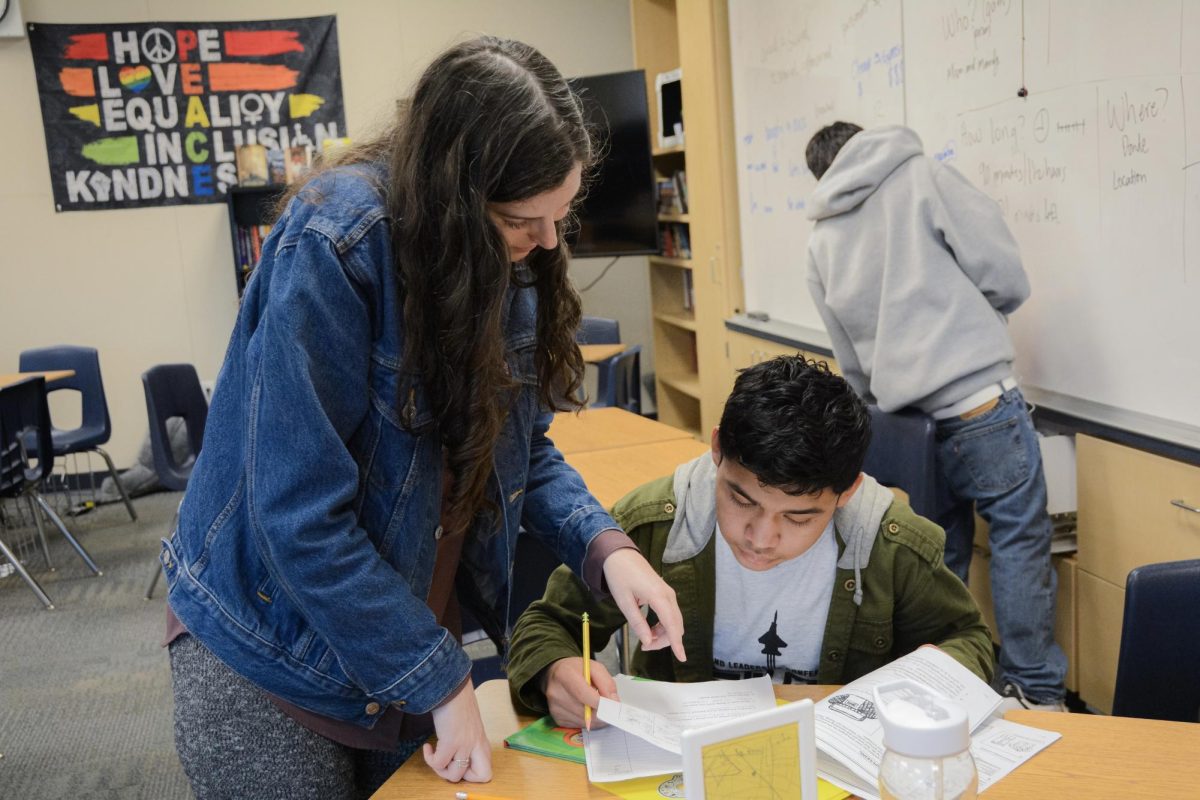SCHS has been applauded for its many diverse education programs, including the English Learning Development program. The ELD program helps incoming students adapt to life on campus while they are still in the process of learning English.
Students who are new to the district and indicate on their enrollment paperwork they speak a language other than English take a state-mandated test, the English Language Proficiency Assessments for California. If they do not score initially fluent, students are classified as an English Language Learner and put into ELD.
Along with the test, counselors look at the students’ age, how much school they have completed, and their transcripts. Depending on their grades and how much English they know, ELD students are placed into different levels of ELD classes, or standard English classes.
Noë Klein, a beginner level ELD teacher, believes ELD is beneficial to students from other countries having experienced hardships in their process of transition.
“When students are coming to this country they’re coming for a reason, whether that is because their parents have a job, because they have family here, some of them are coming for reunification,” Klein said. “Students have a lot of stories and a lot of experiences that need to be addressed in the classroom, and I think that’s a really beautiful thing.”
Klein knows that learning a new language while at school can be difficult for many, but seeing how her students persevere through the challenge makes her proud.
“You’re trying to suddenly learn biology and English. It’s challenging already for students who speak English…you’re learning basically the third language of science and history,” Klein said.
Junior and current ELD student Fernanda Carreon believes that while it is hard to adopt a new culture, the SCHS environment has welcomed and accepted her. After gaining enough confidence to join the water polo team, Carreon has found undying support from her newfound teammates.
“I felt connected with the team. They received me so sweetly, and they helped me with the language,” Carreon said in an email.
Despite the support from her team, there were also instances when Carreon felt like students were disrespectful to her because of the language barrier.
“Some of my classmates were disrespectful to me because I didn’t understand and I can’t communicate with them,” Carreon said. “Instead, some other classmates helped me to understand, and I felt confident.”
Although Klein believes SCHS supports students, she believes the school can ultimately provide more inclusivity.
“We can always do better at making sure students are feeling included, especially for our English learners and newcomers… make them feel welcome and like they are a valued part of our school culture,” Klein said.
Klein believes there may not be enough inclusivity on campus just yet, but luckily, ELD students are part of a tight community in which they can support each other.
“It’s really cool to see students exchanging cultural aspects and things that are shared versus things that are not shared. I really value that,” Klein said.


